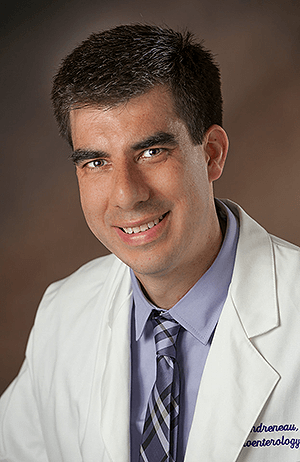
Stephen W. Landreneau, MD, FACG
Associate Professor of Clinical Medicine
Section of Gastroenterology
LSU Healthcare Network Clinic
New Orleans, LA
In 1997, the Balanced Budget Act provided Medicare coverage for colonoscopy for colon cancer screening and since that time, colonoscopy has been the dominant screening method. Now, 21 years later, we are looking to achieve screening in 80% of the population.
Colonoscopy has the ability not only to detect colon cancer but also to prevent it through the detection and removal of precancerous polyps. Obviously, preventing cancer saves an enormous burden for patients and their family members, not limited to surgery, chemotherapy, radiation, etc. Having seen patients bear these burdens, as well has having seen a family member die from colon cancer, to me, it seems a trivial endeavor to drink a bowel preparation, take a day off work and arrange transportation to have a colonoscopy. Yet some patients are reluctant to go through those steps for various reasons. As a gastroenterologist, I clearly advocate for colonoscopy, but if a patient who is at average risk (no family history of colorectal cancer, or colon polyps) opts for a non-invasive stool-based method, I’m not upset in the least, because the main thing is that the patient is getting screened. Those who are at increased risk should continue to undergo colonoscopy.
We reflect on colon cancer screening every March but must remember that it is a disease that strikes year-round, and is preventable through colonoscopy, and curable through early detection.
Dr Stephen W. Landreneau is a paid consultant of Cook Medical.